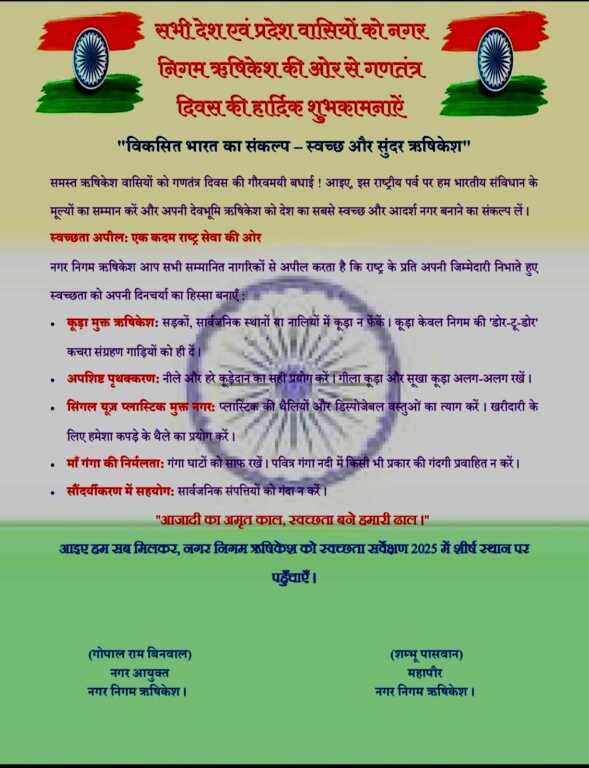Three new criminal laws will be implemented in the country from today




New Delhi : All crimes committed after the date of July 1 will be registered in the new law. From July 1, three new laws, Indian Justice Code, Indian Civil Defense Code and Indian Evidence Act are being implemented in the country in place of IPC, CrPC and Indian Evidence Act. On December 25, 2023, the President gave her approval to three bills.
The Indian Penal Code (IPC in short) is the main criminal law in India. Apart from this, the Indian Evidence Act (Indian Evidence Act) and the Criminal Procedure Code (Criminal Procedure Code, in short CRPC) also join it to form a complete criminal law. The Evidence Act describes what facts come under the category of evidence in any case, who can become a witness, how to take testimony, all these things. The CrPC describes how a criminal case should be conducted, how to summon the parties, how to apply for bail, in which cases anticipatory bail should be granted, how judges should hear criminal cases, what are their discretionary powers.
In the three new laws governing criminal procedure that are being implemented from July 1, to ensure speedy justice, everything from FIR to judgment has been set within a time limit. To speed up criminal trials, timelines have been added at 35 places in the new law. On receiving a complaint, there is a time limit for filing an FIR, completing the investigation, taking cognizance of the case by the court, filing documents and passing the judgment after the trial is over.
A criminal case begins with an FIR. The new law ensures that the FIR is registered within the time limit and is sent to the court. The Indian Civil Security Code (BNSS) provides that an FIR must be registered within three days of receiving a complaint. In cases of three to seven years of sentence, the preliminary investigation will be completed in 14 days and an FIR will be registered. After the search report is received in 24 hours, it will be presented before the court.
The new law also has a timeline for the chargesheet. As before, there is 60 and 90 days time to file the chargesheet, but after 90 days, permission has to be taken from the court to continue the investigation and the investigation cannot be kept pending for more than 180 days. The chargesheet has to be filed in 180 days. In such a situation, the chargesheet cannot be kept pending indefinitely in the name of ongoing investigation.
Along with setting a timeline for the police, a time limit has also been set for the court. The magistrate will take cognizance of the case within 14 days. Many things have been done to ensure that the case comes to trial within a maximum of 120 days. The time for plea bargaining has also been fixed. The new law on plea bargaining says that if the accused accepts the crime within 30 days of framing of charges, the sentence will be reduced.
The new law also talks about completing the process of documents in the case in 30 days. The time limit for giving the verdict is also fixed. After the trial is completed, the court will have to give the verdict in 30 days. On filing written reasons, the period of decision can be up to 45 days but not more than that. The new law also sets a time limit for mercy petition. The mercy petition will have to be filed within 30 days of the rejection of the appeal from the Supreme Court.
Which law will replace which-
– Indian Penal Code (IPC) 1860 is being replaced by Indian Justice Code 2023
– Criminal Procedure Code (CRPC) 1973 is being replaced by Indian Civil Protection Code 2023
– Indian Evidence Act 1872 is being replaced by Indian Evidence Act 2023
Now, Section 101 instead of Section 302, punishment for fraud is not in Section 420, but in 316.
In the court scenes of films, we often hear this dialogue that if found guilty under Section 302 of Tajirat-e-Hind, the culprit is sentenced to life imprisonment or death. In ordinary life also, people associate murder with Section 302. The number of sections of crime has been changed in the new criminal law. Now the punishment for murder will be pronounced under Section 101. Now, Section 302 will punish chain snatching or snatching.376 was known to the common people as the section of rape, but now the sections of rape will be 63, 64 and 70 (gangrape). Now, not treason, sedition, snatching and crimes against transgender have also been added to the new law.
Three new criminal laws are going to be implemented across the country from July 1. Meanwhile, Union Law Minister Arjun Ram Meghwal said on Sunday that these three laws are necessary in view of the development taking place in the field of technology and forensic science. Meghwal also said that all three criminal laws have been brought only after deliberation. Meghwal said- New criminal laws will be implemented from July 1, 2024. All three criminal laws have been brought after deliberation. The aim of the government is to provide justice to the people of the country.













